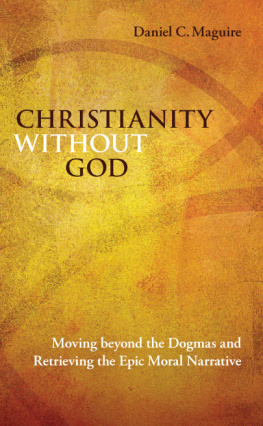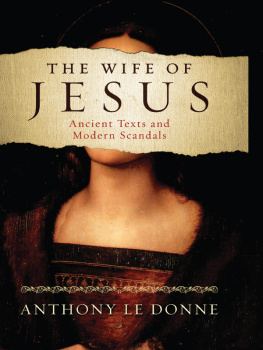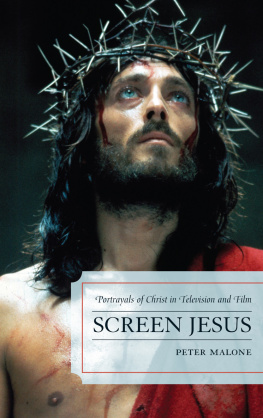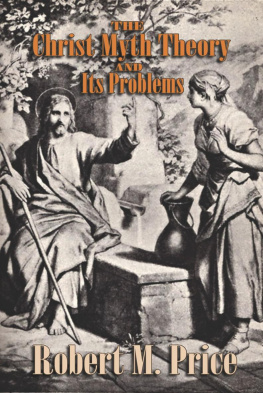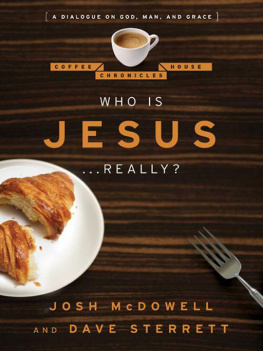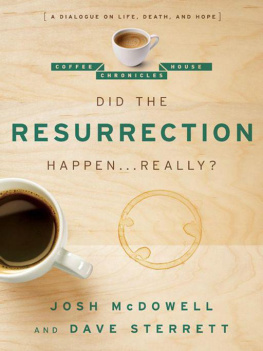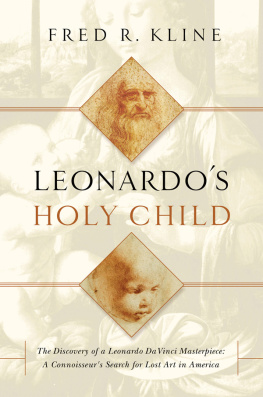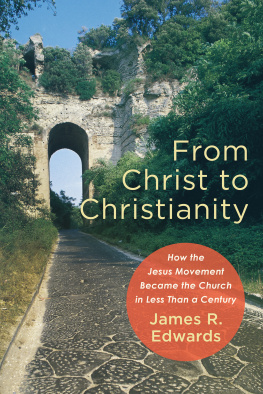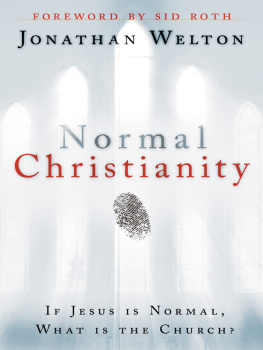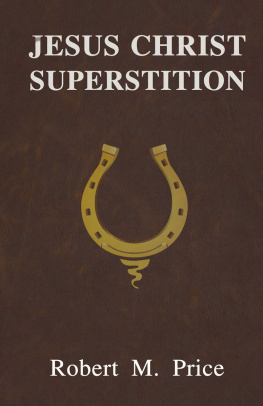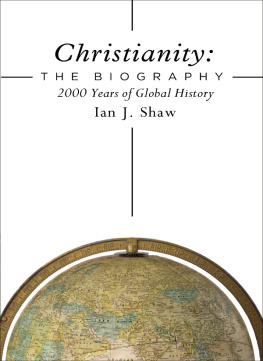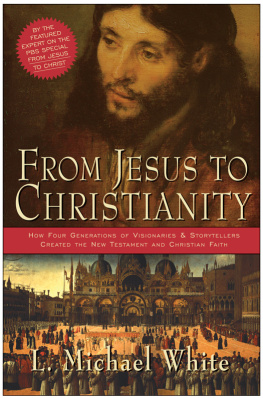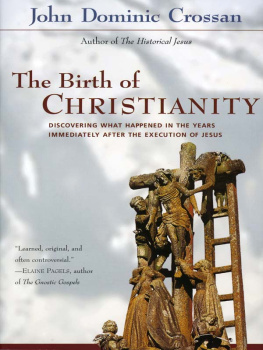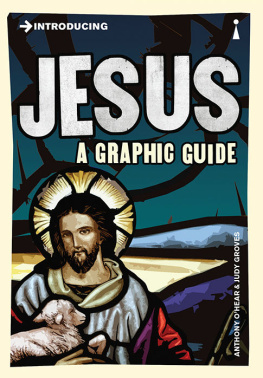CHRISTIANITY WITHOUT GOD
CHRISTIANITY WITHOUT GOD
Moving beyond the Dogmas and Retrieving the Epic Moral Narrative
DANIEL C. MAGUIRE
Published by State University of New York Press, Albany
2014 State University of New York
All rights reserved
Printed in the United States of America
No part of this book may be used or reproduced in any manner whatsoever without written permission. No part of this book may be stored in a retrieval system or transmitted in any form or by any means including electronic, electrostatic, magnetic tape, mechanical, photocopying, recording, or otherwise without the prior permission in writing of the publisher.
For information, contact State University of New York Press, Albany, NY
www.sunypress.edu
Production by Diane Ganeles
Marketing by Fran Keneston
Library of Congress Cataloging-in-Publication Data
Maguire, Daniel C., author.
Christianity without God : moving beyond the dogmas and retrieving the epic moral narrative / Daniel C. Maguire.
pages cm
Includes bibliographical references and index.
ISBN 978-1-4384-5405-4 (hardcover : alk. paper)
ISBN 978-1-4384-5404-7 (pbk. : alk. paper) 1. Jesus ChristRationalistic interpretations. 2. ChristianityControversial literature. I. Title.
BT304.95.M34 2014
230dc23
2014002127
10 9 8 7 6 5 4 3 2 1
To the American Association of University Professors
which stands tall as the defender of academic freedom and integrity.
CONTENTS
PART I
GOD
CHAPTER 1
OVERTURE
A Note on My Provenance
W hen I knelt on the marble oor of the chapel in Rome and heard the bishop intone over me, Tu es sacerdos in aeternum (you are a priest forever), I could never have imagined I would one day write this book. In these pages, I argue against the existence of a personal god, the divinity of Jesus, and the belief that continued living is the sequel to death. I nd no persuasive arguments for any of those hypotheses.
The guiding maxim of my intellectual journey has been to follow the truth wherever it beckons.
My years as a professor have been almost exclusively in Catholic universities. I taught at Villanova University and at St. Marys Seminary and University in Baltimore. I taught at the Catholic University of America, held the John A. OBrien Chair in moral theology at the University of Notre Dame, and was visiting professor at Trinity College, Dublin. Most of my career has been at Marquette University, a Jesuit university in Milwaukee. I am past president of the Society of Christian Ethics. In 2014 that Society awarded me its Lifetime Achievement Award.
Early on I fell in love with the revolutionary moral classic that began with the mythopoetic Exodus/Sinai narrative and then pulsed like a building leitmotif through the maze of Hebrew and Christian scriptures and traditions.
, I return to that brilliant moral epic often buried under corruption and dogmatic assertions of dubious epistemological pedigree. Much of this poetic classic is as piercingly relevant today as if it had been written this morning. It can take its place among other great moral classics, not as the best or last word but as a word that deserves a fresh hearing. It can speak again to our dangerous species need to develop a realistic global ethic that can bring health to a planet deteriorating under the metastasizing effects of our ungrateful mismanagement.
C RITIQUE AND P ROMISE
It has long been assumed that Christianity rests on three foundational rocks: (1) a personal deity; (2) an incarnate divine Jesus who existed before his birth (as one in a trinity of divine persons); (3) continued living after death. I argue in this book that this dogmatic triad rests on fatal fault lines of cognitive instability and that these imaginative beliefs and hypotheses are more loosely rooted in biblical sources than is generally acknowledged. I further contend that these beliefs are not the best that Christianity can offer a troubled and troubling humanity.
Both theists and most of todays agitated atheists get a failing grade in literary criticism, the atheists by obsessing over the dogmas and the theists by mistaking metaphors for facts. Both miss the epic poetry that moves through the complex biblical literature.
In this book, I argue that the moral contribution of Christianity does not depend on the personal God and afterlife hypotheses, nor on doing to Jesus of Nazareth what Jesus did not do to himselfthat is, turn him into a god. These beliefs, though comforting in some of their promises, are increasingly questionable. They sufferall three of themfrom (a) loose rootage in the Hebraic and Christian traditions; (b) falsely concretized metaphors and a reduction of poetic imagery to supposed historical and empirical facts; and (c) a century of scholarly research that has not been kind to the underlying assumptions of this dogmatic triad. This book critiques each of these dogmas on the basis of these weaknesses.
Properly understood and critiqued, the major religions are, at their best, classics in the art of cherishing, epics of revolutionary possibility-thinkingat least when they dont get mired in their own ebullient imaginations or get co-opted and pressed into service by the societal keepers of privilege and power. Because of the phantasmagoria religions generate, it is easy for secular minds to ail at them. From Feuerbach to Nietzsche, to the new mandarins of atheism, Hitchens, Harris et al., the tendency has been to bash the dogmas and ignore the moral wisdom and powerfully relevant insights into human psychology, politics, and, yes, economics, that these tainted classics carry in their poetic train.
Still, giving credit where credit is due, these vexed modern and postmodern critics of religion often argue welland prevailwhen they tilt their lances and charge. They do make many good points and are veritable hammers of noxious superstitions. Of course, they have an easy target. Impetuous religious imagination does run wild, providing a lot of grist for the mockery mill.
R ELIGIONS R UN R IOT
We must face the fact that there is nothing that stirs the human imagination as much as the tincture of the sacred whether dened theistically or nontheistically. No area of literature produces the fantastical claims that religious literature does. From Jupiter to Kali the enigmatic Hindu goddess, from sexy gods who create with masturbation or intercourse to gods who create chastely with a simple word, from the extravagant gods of Sumer to the rambunctiously misbehaving gods of Olympus, from the African god who gets drunk on palm wine on his way to a botched creation to the more disciplined specialized gods who focus on agriculture or fertility or war, the dramatis personae divinae is endless. As the ancient Thales said, everything is full of gods and what a remarkable and idiosyncratic ensemble they are.
The gods of religious imagination are never static; they grow in talent and in tandem with the human species. With the invention of writing they turned to script, whether on tablets of stone at Sinai or by sending angels with names like Gabriel or Moroni to write books or leave hidden tablets. (There are as yet no divinely inspired lms or videos, and no god is yet a Facebook friend.)
So there it is, a literature and a lore lled with gods and demigods and angels, with virgin births, resurrections from the dead, preexistence before conception (as some gospel writers, not all, allege for Jesus), and the ability to ascend into the skies without ever going into orbit. No literature can match religious literature in extravagances of imagination.

